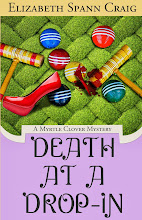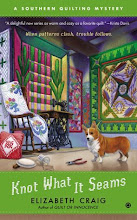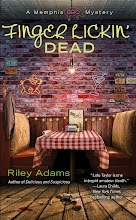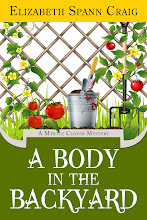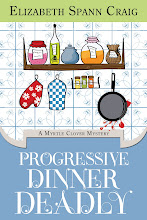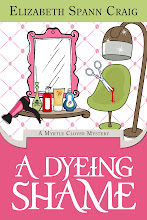 Unfortunately, my son’s technology teacher got very frustrated with his 7th grade class Monday.
Unfortunately, my son’s technology teacher got very frustrated with his 7th grade class Monday.
One of the students hadn’t followed directions and printed out 8 sheets on the computer printer instead of the 2 that the teacher instructed.
The teachers are allotted a certain number of paper reams per quarter. The student who didn’t listen understandably upset the teacher.
To my irritation, though, he punished the whole class. It was probably one of those “straw that broke the camel’s back” things. I’ve met this teacher and thought him a pretty nice guy.
To add to my irritation, his punishment was for the class to write.
Wonderful. Great way to foster a love of writing in the next generation. It couldn’t be math problems instead? (Now I’m risking upsetting the math types here….but there are only 2 math lovers that I’m aware of who read this blog.)
My son came home in a really frustrated mood and told me he had to write a five page essay on three computer-related questions.
The questions? They could be answered in ten or fewer words—they were basically vocab terms for Microsoft’s Excel software program.
“I’ll never be able to get five pages from these questions!” He was swamped with other work….he’s in honors courses….and didn’t really have the time to suddenly write an essay for an elective course.
“Well…..you can. It’s completely possible. It won’t be good writing, but this isn’t Language Arts,” I said.
“How?”
“Picture the most boring person you’ve ever known. Think of a topic that’s dear to their hearts. Envision them blabbing on and on and on about their love for this thing while you’re desperate to get away from them. That’s the kind of writing you’ll need to do.”
The beginning: I recommended he start off with a couple of paragraphs about Excel itself and why it’s important. And list allll the people who find Excel useful: accountants, students, stock brokers, etc. Then list all the ways they could find it useful.
The middle: I recommended he define the vocabulary word. And then elaborate on why the item in question is a useful feature in Excel. Give several examples that don’t cover new ground but reinforce the feature’s benefits. Do the same with the two other questions.
The end: Wrap it up with a drawn-out closing, overstating the obvious. Repeat some of the same points in the summation.
There would be no subtlety in this essay. He would be spelling it all out, word by word. He would pretend that the person reading it had never heard of the Excel spreadsheet program—or, possibly, a computer-- and would explain, in dreadful detail, all the different ways that different types of people could benefit from using this software and these particular features of it.
I read it after he wrote it. It was gosh-awful, which is exactly what it needed to be, under the circumstances. It's probably an A paper, despite its intrinsic hideousness. I’m so glad I’m not this teacher, reading a total of 150 pages of that drivel from this one class.
The odd thing I found is that my son was elated. He hadn’t realized it was even possible to elaborate to that extent on a topic. I hastened to tell him never to do it with a Language Arts essay.
If I were editing that bloated monstrosity?
He used approximately 1250 words to explain something that easily could be stated in 100 or fewer words. I’d have slashed most of the text as unnecessary.
The beginning was unwieldy and verbose. It dragged on and on. It didn’t zone in to a tight focus on the subject (these few features of the software) but prattled on about the big picture (the entire spreadsheet program and its benefits.) In a murder mystery, this would be the equivalent of talking about the importance of the justice system instead of focusing on a soon-to-be occurring crime.
He assumed his reader had no experience with his subject matter (the only way to squeeze out a big word count was to over-explain.) Yet he knew the paper was going to a technology teacher. We know our audience and need to make sure we don’t talk down to them or over-explain.
He used an information dump on a topic, categorically listing aspects of the program that could be useful. In a normal paper or manuscript, there’s no need to overstate descriptions or to sum up. If you’ve described Tina as a nerd, then you don’t need to keep expounding on this a few lines down: , “Tina loved to read.” “Anytime Nova was on, Tina watched it.” “The highlight of Tina’s day was when she got to watch ‘Star Trek.’” Okay, everyone got the point at the very beginning when you succinctly stated that Tina was a nerd. The rest is overstating the point, unless the reader needs to know about Tina’s ‘Star Trek’ love as an important plot point. No need to belabor it.
The ending was no quick summation of points covered. No, it was this grueling step by step review through the material. I like endings to tie into the beginning, but to offer some fresh insight…after all, a journey should have occurred through the book. Rehashed endings can be painful to read through.
It was ghastly. But I think it taught him more about writing than penning a good paper would have. He had to think about all the standards of good writing---really think about them. And then deliberately disregard them all. It ended up being a useful exercise.
Have you ever read something that made you wonder how it got published? Did you think of ways you could have written it better yourself? Has that provided you with any inspiration for your own writing?
And...it's pumpkin lasagna, y'all, at the Mystery Lovers' Kitchen! Now, don't make that face until you see what's in it. I promise it's sweet...and it doesn't have any tomatoes in it.
 My daughter’s best friend is Natalie. Natalie’s parents moved here from South America nine years ago.
My daughter’s best friend is Natalie. Natalie’s parents moved here from South America nine years ago. 


































